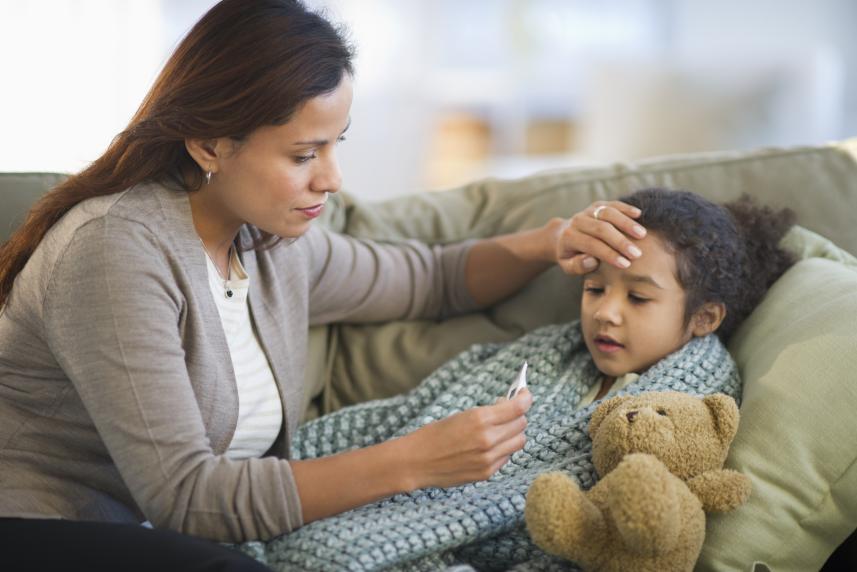How can you help your child with fevers, fussiness, coughing, and wheezing?
Talk with your primary care provider (PCP) about antibiotics to learn when they’re necessary and when they’re not. Here are three important questions.

Question #1: Why should I wait to give my child an antibiotic?
For one, antibiotics only work for bacterial infections. Many children’s infections, such as the common cold, are viral and won’t respond to antibiotics.
Many infections get better on their own. Your child’s PCP may want to wait two to three days after diagnosing an infection to see if your child’s condition improves. If it gets better, you’ll avoid giving your child unneeded antibiotics.
Antibiotics can be helpful when they’re needed, but there are risks like stomach issues, kidney damage, or liver damage. If your PCP prescribes antibiotics for an infection, discuss how to give the antibiotics and what side effects could occur.
Question #2: What can I do in the meantime to help my child feel better?
Ask your PCP about over-the-counter pain relievers. Find out what dose to give your child and how often.
Question #3: How will I know if my child needs antibiotics?
An antibiotic may be needed if your child’s symptoms don’t get better (or worsen) after two to three days. Ask your PCP what to watch for and know when to call.


